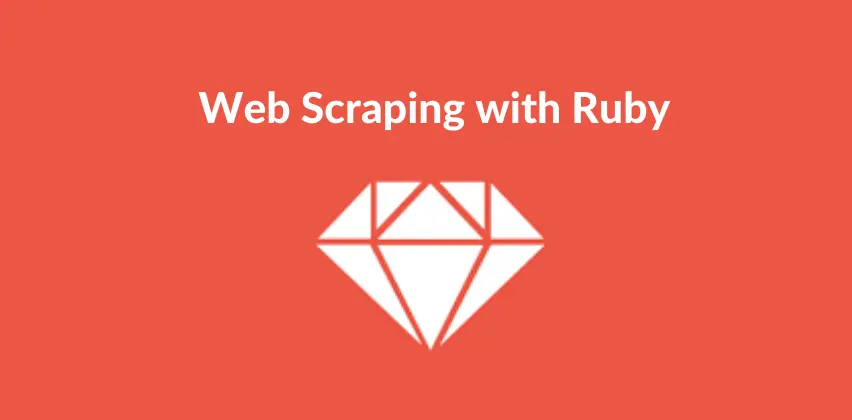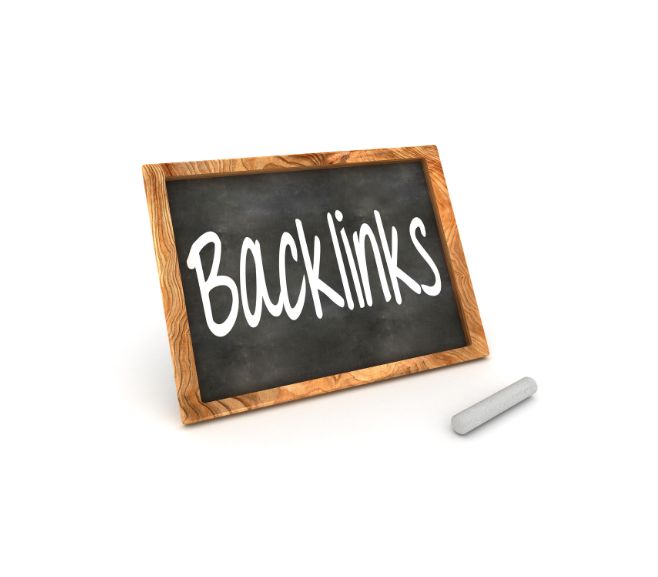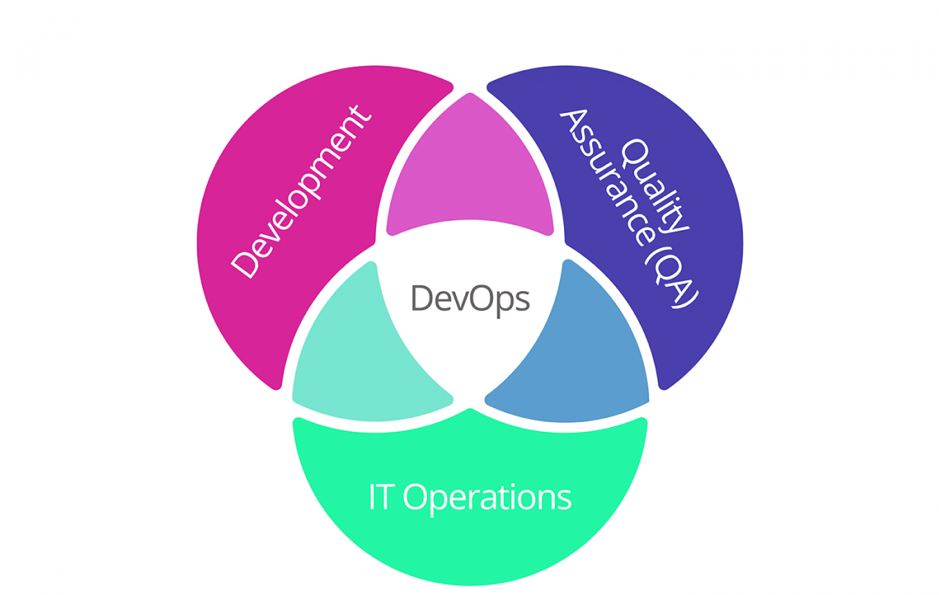Thousands of websites are available on the internet for you to scrape data from. Some tasks, such as extracting contact information or product descriptions, are easy and require only a few lines of code. Other tasks may require hours of work and require scraping entire websites. Which web scraping programming language should you use? The answer is: it depends. In this article, we’ll explore the top three web scraping languages in 2023 – Ruby, Python, and Java – and help you decide which one is right for your needs.
What are the top web scraping programming languages in 2023?
There are many web scraping programming languages and it can be quite tough to choose the right one for your needs. However, in this article, we have compiled a list of the top few web scraping programming languages that will be in demand in 2023.
Here are the top 3 web scraping programming languages:
1. Ruby: Ruby is a popular choice for web scraping because of its simplicity and readability. It’s also robust and has a large community of developers who can help you with any problem you encounter.
2. Python: Python is another popular choice for web scraping because it’s versatile, easy to learn, and has a large community of developers who can help you with any problem you encounter. Additionally, Python has an extensive libraries available that make it ideal for developing complex algorithms or scripting functions.
3. JavaScript: JavaScript is one of the most popular scripting languages on the planet and is perfect for developing cross-platform applications. Additionally, JavaScript offers excellent performance when it comes to processing large data sets.
Ruby
Ruby is a popular and versatile language for web scraping. It has many features that make it an ideal choice for extracting data from websites. Ruby is easy to learn and can be adapted to a variety of tasks. Additionally, Ruby is frequently used in conjunction with other languages, such as Rails, which makes development and deployment easier.
Python
Python is a widely used high-level interpreted language that was created by Guido van Rossum in the early 1990s. Python has an easy to read syntax and supports object-oriented programming. It also has a large standard library with modules for data analysis, scientific computing, networking, web development, and more.
A major advantage of Python is its readability; it is not as cryptic as other languages such as Ruby or Java. This makes it ideal for beginners who are looking to get started in web scraping programming. Additionally, Python has favorable performance characteristics when compared to other languages such as Ruby or Java.
Java
Java is a popular programming language and it is used by many web scraping developers. Java is an interpreted language, which means that the code is run on a computer without being compiled into machine code. This makes it easier to read and debug. Java also has a large community of developers, which makes finding help when needed easy.
One of the biggest benefits of using Java for web scraping is its popularity. There are many libraries and tools available for Java, which means that you will be able to find what you need quickly. Additionally, Java supports rich functionality such as networking and graphics processing. This makes it ideal for tasks such as data extraction or data analysis.
Another benefit of using Java for web scraping is its scalability. Because Java is an interpreted language, it can be run on small devices like embedded systems or smartphones. This means that your project can be scaled up or down easily without causing any problems. Finally, Java is supported by a wide range of platforms, so it will work on most devices without issue
C#
Looking for a programming language that can help you extract data from websites? Look no further than C#! These days, this language is used by many developers to extract data from websites. Here are some of the best reasons why C# is the perfect choice for web scraping:
C# is an object-oriented language, which means it allows you to create complex programs easily. This makes it a great choice for web scraping because it makes coding more streamlined and organized. Additionally, C# has a robust library of built-in functions that make extracting data from websites easy.
Last but not least, one of the biggest benefits of using C# for web scraping is its support for cross-platform development. This means that you can develop your scrapping program using the same code base across different platforms, such as Windows and MacOS. This makes developing your scrapping program simpler and more efficient.
Shell Scripting
One of the most common programming tasks is extracting data from a web page. This can be done using a variety of languages, but there are some that are better suited for this task than others. In this article, we will look at the best web scraping programming languages and why they are chosen over other options.
Ruby is known for its versatility and ease of use, making it a popular choice for web scraping projects. Ruby also has built-in support for many common scraping tasks, such as parsing HTML pages into DOM trees and extracting data from those trees. Furthermore, Ruby is fast enough to handle larger workloads, making it an ideal language for automated scraping projects.
Python is another popular language for web scraping projects. Python has many similarities to Ruby, including its ease of use and versatile nature. However, Python also offers some advantages over Ruby when it comes to web scraping. For example, Python has built-in support for creating modules and classes to simplify complex tasks related to web scraping. Additionally, Python is faster than Ruby when it comes to processing large amounts of data.
What is a Web Scraping Programming Language?
A web scraping programming language is a computer program that allows users to extract data from a website. The language enables the user to interact with the website in a way that is similar to how humans would, by traversing its DOM (Document Object Model).
This means that the user can capture all of the elements on a given page, including images and text. Once the data has been captured, it can be stored in a variable or outputted to STDOUT.
Web scraping languages come in many different varieties and can be used for a variety of purposes, such as data analysis and research. Some of the most popular web scraping languages are Ruby on Rails, Python, and Java.
The Different Types of Web Scraping Languages
There are many web scraping languages out there, but which one is the best for you? In this post, we’ll cover the different types of web scraping languages and which one is best for you.
When it comes to web scraping, there are two main categories: script scraping and data extraction. Script scraping is when you take a raw or unevaluated text file and parse it into individual elements like HTML tags and JavaScript functions. This information can then be used in subsequent steps of your data extraction process. Data extraction is when you pull specific pieces of data from a website like account numbers or email addresses.
Script Scraping
The most popular type of web scraping is script scraping. Scripts are code that helps you parse websites into their individual pieces. There are many different scripts available on the internet, so it’s important to find something that fits your needs specifically. Some of the most popular scripts include scrapy, lxml, and BeautifulSoup4.
Script scrapers work by taking an input URL and parsing it into its individual components. This can be done through regular expressions or through specific tags that a scraper will look for (like ). Once the script has parsed the URL, it will return a list of elements that were found. This list can then be used in subsequent steps of your data extraction process.
One downside to using scripts is that they can take a long time to run depending
Ruby as a Web Scraping Programming Language
Ruby is a popular choice for web scraping because it is versatile, fast, and has a large community of developers. Here are five reasons why you should consider using Ruby for your next web scraping project:
1. Versatility
Ruby is a versatile language that can be used for a variety of tasks, such as web scraping. This makes it easy to find the right libraries and tools to support your project goals.
2. Speed
Ruby is fast compared to other programming languages commonly used for web scraping. This allows you to quickly analyze data sources and carry out targeted actions.
3. Large community of developers
Ruby has a large community of developers who are available to help with your projects. This includes both professionals and hobbyists who are passionate about coding.
4. Easy learning curve
Pros and Cons of Ruby as a Web Scraping Programming Language
Ruby is a popular language for web scraping because of its ease of use and interactive nature. It has many pros, including being fast, extensible, and well documented. However, it does have some cons, such as its relative lack of popularity compared to other languages and the need to learn a specialized syntax.
How to Use Ruby for Web Scraping
In this blog post, we will be discussing how to use Ruby for web scraping. We will be covering the following topics:
What is a web scraping tool?
How can Ruby be used as a web scraping tool?
Why should you use Ruby for web scraping?
What is a Web Scraping Tool?
A web scraping tool is an application or code that helps extract data from websites. It can be used to collect various types of data, such as pages and posts, images, and even structured data like databases or XML files. There are many different web scraping tools available on the market today. However, one of the most popular ones is called Selenium.
Thousands of websites are available on the internet for you to scrape data from. Some tasks, such as extracting contact information or product descriptions, are easy and require only a few lines of code. Other tasks may require hours of work and require scraping entire websites. Which web scraping programming language should you use? The answer is: it depends. In this article, we’ll explore the top three web scraping languages in 2023 – Ruby, Python, and Java – and help you decide which one is right for your needs.
What are the top web scraping programming languages in 2023?
There are many web scraping programming languages and it can be quite tough to choose the right one for your needs. However, in this article, we have compiled a list of the top few web scraping programming languages that will be in demand in 2023.
Here are the top 3 web scraping programming languages:
1. Ruby: Ruby is a popular choice for web scraping because of its simplicity and readability. It’s also robust and has a large community of developers who can help you with any problem you encounter.
2. Python: Python is another popular choice for web scraping because it’s versatile, easy to learn, and has a large community of developers who can help you with any problem you encounter. Additionally, Python has an extensive libraries available that make it ideal for developing complex algorithms or scripting functions.
3. JavaScript: JavaScript is one of the most popular scripting languages on the planet and is perfect for developing cross-platform applications. Additionally, JavaScript offers excellent performance when it comes to processing large data sets.
Ruby
Ruby is a popular and versatile language for web scraping. It has many features that make it an ideal choice for extracting data from websites. Ruby is easy to learn and can be adapted to a variety of tasks. Additionally, Ruby is frequently used in conjunction with other languages, such as Rails, which makes development and deployment easier.
Python
Python is a widely used high-level interpreted language that was created by Guido van Rossum in the early 1990s. Python has an easy to read syntax and supports object-oriented programming. It also has a large standard library with modules for data analysis, scientific computing, networking, web development, and more.
A major advantage of Python is its readability; it is not as cryptic as other languages such as Ruby or Java. This makes it ideal for beginners who are looking to get started in web scraping programming. Additionally, Python has favorable performance characteristics when compared to other languages such as Ruby or Java.
Java
Java is a popular programming language and it is used by many web scraping developers. Java is an interpreted language, which means that the code is run on a computer without being compiled into machine code. This makes it easier to read and debug. Java also has a large community of developers, which makes finding help when needed easy.
One of the biggest benefits of using Java for web scraping is its popularity. There are many libraries and tools available for Java, which means that you will be able to find what you need quickly. Additionally, Java supports rich functionality such as networking and graphics processing. This makes it ideal for tasks such as data extraction or data analysis.
Another benefit of using Java for web scraping is its scalability. Because Java is an interpreted language, it can be run on small devices like embedded systems or smartphones. This means that your project can be scaled up or down easily without causing any problems. Finally, Java is supported by a wide range of platforms, so it will work on most devices without issue
C#
Looking for a programming language that can help you extract data from websites? Look no further than C#! These days, this language is used by many developers to extract data from websites. Here are some of the best reasons why C# is the perfect choice for web scraping:
C# is an object-oriented language, which means it allows you to create complex programs easily. This makes it a great choice for web scraping because it makes coding more streamlined and organized. Additionally, C# has a robust library of built-in functions that make extracting data from websites easy.
Last but not least, one of the biggest benefits of using C# for web scraping is its support for cross-platform development. This means that you can develop your scrapping program using the same code base across different platforms, such as Windows and MacOS. This makes developing your scrapping program simpler and more efficient.
Shell Scripting
One of the most common programming tasks is extracting data from a web page. This can be done using a variety of languages, but there are some that are better suited for this task than others. In this article, we will look at the best web scraping programming languages and why they are chosen over other options.
Ruby is known for its versatility and ease of use, making it a popular choice for web scraping projects. Ruby also has built-in support for many common scraping tasks, such as parsing HTML pages into DOM trees and extracting data from those trees. Furthermore, Ruby is fast enough to handle larger workloads, making it an ideal language for automated scraping projects.
Python is another popular language for web scraping projects. Python has many similarities to Ruby, including its ease of use and versatile nature. However, Python also offers some advantages over Ruby when it comes to web scraping. For example, Python has built-in support for creating modules and classes to simplify complex tasks related to web scraping. Additionally, Python is faster than Ruby when it comes to processing large amounts of data.
What is a Web Scraping Programming Language?
A web scraping programming language is a computer program that allows users to extract data from a website. The language enables the user to interact with the website in a way that is similar to how humans would, by traversing its DOM (Document Object Model).
This means that the user can capture all of the elements on a given page, including images and text. Once the data has been captured, it can be stored in a variable or outputted to STDOUT.
Web scraping languages come in many different varieties and can be used for a variety of purposes, such as data analysis and research. Some of the most popular web scraping languages are Ruby on Rails, Python, and Java.
The Different Types of Web Scraping Languages
There are many web scraping languages out there, but which one is the best for you? In this post, we’ll cover the different types of web scraping languages and which one is best for you.
When it comes to web scraping, there are two main categories: script scraping and data extraction. Script scraping is when you take a raw or unevaluated text file and parse it into individual elements like HTML tags and JavaScript functions. This information can then be used in subsequent steps of your data extraction process. Data extraction is when you pull specific pieces of data from a website like account numbers or email addresses.
Script Scraping
The most popular type of web scraping is script scraping. Scripts are code that helps you parse websites into their individual pieces. There are many different scripts available on the internet, so it’s important to find something that fits your needs specifically. Some of the most popular scripts include scrapy, lxml, and BeautifulSoup4.
Script scrapers work by taking an input URL and parsing it into its individual components. This can be done through regular expressions or through specific tags that a scraper will look for (like ). Once the script has parsed the URL, it will return a list of elements that were found. This list can then be used in subsequent steps of your data extraction process.
One downside to using scripts is that they can take a long time to run depending
Ruby as a Web Scraping Programming Language
Ruby is a popular choice for web scraping because it is versatile, fast, and has a large community of developers. Here are five reasons why you should consider using Ruby for your next web scraping project:
1. Versatility
Ruby is a versatile language that can be used for a variety of tasks, such as web scraping. This makes it easy to find the right libraries and tools to support your project goals.
2. Speed
Ruby is fast compared to other programming languages commonly used for web scraping. This allows you to quickly analyze data sources and carry out targeted actions.
3. Large community of developers
Ruby has a large community of developers who are available to help with your projects. This includes both professionals and hobbyists who are passionate about coding.
4. Easy learning curve
Pros and Cons of Ruby as a Web Scraping Programming Language
Ruby is a popular language for web scraping because of its ease of use and interactive nature. It has many pros, including being fast, extensible, and well documented. However, it does have some cons, such as its relative lack of popularity compared to other languages and the need to learn a specialized syntax.
How Can Ruby Be Used As A Web Scraping Tool?
Ruby can be used as a powerful and versatile web scrapping tool due to its popularity and wide range of capabilities. To start using it, you first need to install the appropriate libraries and tools. Then, you can start by creating a new project using the rscratch command line utility. This utility enables you to create new projects based on your specific needs, such as testing or extraction purposes. Afterward, you can configure it using the relevant options and start scraping websites!
The benefits of using Ruby for web scraping include its simplicity and speed. Additionally, it has several built-in features that make it very effective at extracting data from websites. For example, Ruby supports
Conclusion
In the field of web scraping, there are many programming languages that can be used to automate tasks on websites. However, given that this type of work is often time-sensitive and requires precision, Ruby is generally considered to be the best language for the job. In 2023, we predict thatRuby will continue to reign as the best choice for web scraping programming due to its popularity and versatility.
Ruby can be used as a powerful and versatile web scrapping tool due to its popularity and wide range of capabilities. To start using it, you first need to install the appropriate libraries and tools. Then, you can start by creating a new project using the rscratch command line utility. This utility enables you to create new projects based on your specific needs, such as testing or extraction purposes. Afterward, you can configure it using the relevant options and start scraping websites!





